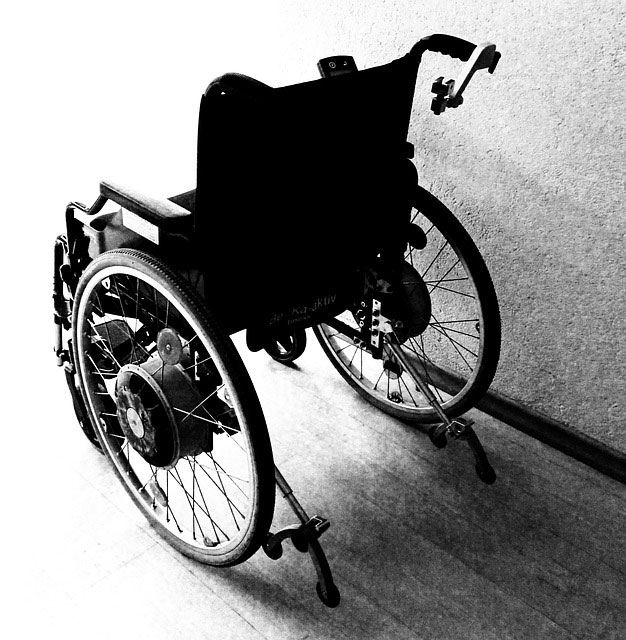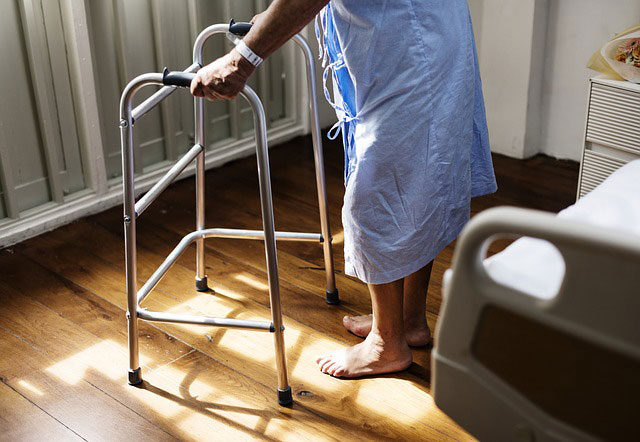Health and Social Care Services: The Essential Guide (2019)
 Caring for ourselves and loved ones in times of need is imperative.
Caring for ourselves and loved ones in times of need is imperative.
However, just researching the various options is a daunting task and can be confusing if you’re at the start of your health and social care journey.
Many families are juggling careers and childcare responsibilities, which can make it difficult to care for themselves or provide support to loved ones who require medical intervention or social assistance.
Busy doctors, nurses and hospitals mean it’s sometimes hard to access the right care at the right time, while social care services offer a plethora of options that can be overwhelming to the uninitiated.
In this article, we aim to break down some of the health and social care options available, so you can plan the services that will be most helpful for you.
When deciding on the best route, communication with your GP and social services will ensure that you make an informed choice.
If you need a referral for further healthcare services, your doctor can signpost you, whereas if you require social care assistance, this can be provided by your local council and social services department, who can arrange an assessment of your needs.
Let’s dive in.
What is Health and Social Care?
All of the services available in the UK can get rather confusing, and that’s mainly because different bodies handle the two systems; healthcare is centrally organised by the Government, while local authorities administer social care.
Because of the incredible number of moving parts and organisations involved, the system can sometimes lack cohesion, and finding answers to your questions may be difficult.
Healthcare
England, Wales, Scotland and Northern Ireland each have their own healthcare systems, collectively we know as the NHS. It’s publicly funded by central government, with private sector and voluntary organisations providing additional services.
Although private contractors like GP’s, pharmacies and dentists often work in under the NHS umbrella, all care services you may require are free at the point of access.
Most of us are familiar with the care pathways offered by the NHS. General Practitioners are usually your first point of contact for health issues, who can refer into more specialist secondary care hospitals or in the case of emergencies, direct you to A+E.
Clinical Commissioning Groups, overseen by NHS England, decide which hospital and community services to provide, and if you’re treated in hospital for a health condition, services offered locally in your community may follow. This might include community nurse home visits, physiotherapy or occupational therapy.
Social Care
Although we’re all fairly familiar with the NHS, social care is a different animal.
That’s because social care is a wide-ranging term covering numerous agencies and activities, from child protection and youth work right through to residential and end of life care.
The social care system is in place to provide help to those in need, such as individuals with mental health problems, learning or physical disabilities, as well as vulnerable adults and children.
Such a broad range of services provides a safety net to those most at risk and has been built into our society for several hundred years.
An example of an area that our dedicated care worker community contribute to is adult social care. On a practical level, this can include help with washing and dressing, along with simple activities of daily living such as getting up in the morning, medication management and daily chores.
Social care is assuming a far more important role in the UK as we face an ageing population and greater incidence of age-related illness. However, unlike NHS treatment, social care isn’t free for everyone and how much you contribute to your care will depend on your financial situation.
The local government has the primary responsibility for publicly funded social care. In this role, local councils provide information and advice, assess care needs, arrange short-term support or reablement, safeguard vulnerable individuals and commission a large range of care services to fulfil their obligations.

Care Services
Many of us are undoubtedly aware of some of the health services available. Unless you decide to self-pay and go private, your first stop will be the GP, who could either choose to manage your condition in the community, referring to relevant practitioners such as District Nurses, or for further investigation or consultation in hospital.
The social care services available to you should be organised through your local council and start with a care needs assessment. Depending on your care needs, you may be offered anything from information services, community support, day centre access, equipment to enhance your independence, home care or even residential care.
Additionally, private home care providers and specialised care homes can evaluate your situation and provide recommendations to meet your requirements.
Any support or care you receive should be in line with current medical standards and be regulated by the Care Quality Commission. So whether your elderly parent needs visiting care at home, or you have a relative requiring specialist, condition-led nursing care, there should be an option to suit you.
Care and Support Needs Assessment
If you feel you need extra support, you can simply apply to your local authority for a care and support needs assessment. You’ll then be offered services suitable for your situation.
If you live in England or Wales, click here.
If you live in Scotland, click here.
If you live in Northern Ireland, click here.
Developing Your Health and Social Care Plan
Whereas your health plan will largely be guided by the health professional coordinating your care, if you require social care, you may have more input. This individualised care plan will lay out how your support and care needs will be met.
Individualised care plans cover a number of areas including:
- The care needs identified in your assessment
- How your local authority intends to meet your care needs
- Your personal budget
- An assessment of the ways your needs can be reduced over time and how to prevent future needs occurring.
Individualised care plans will aim to support you in the following ways:
- Encourage and support you to live independently
- To have as much control over your own life as possible
- To participate in society as an equal
- To have access to employment and family life
- Ensure you have the best possible quality of life
- Ensure your dignity and self-respect
Once your social care plan is in place you’ll want to know a little more about the health and social care service available. Read on to discover more.
We’re always looking for help to further our mission and assist our care workers in supporting your loved ones. Even if it’s only the price of a cup of coffee, we deeply appreciate any contribution.

Community Activities
Maintaining a connection with your community is often a central part of wellbeing and could include attending social functions, cultural or sporting events. Sometimes simply having access a community transport service is all you need to help maintain your social links.
Day Centres
Meeting people socially, participating in activities and sharing a communal meal are all potential benefits of attending a day centre. They are also a form of respite for carers, who may require a break to run errands or simply recharge.
Equipment and Home Adaptations
Equipment or home adaptations can be a hugely effective way to help people remain independent and living in their own homes. The provision of simple items such as a jar gripper (to make opening jars easier) all the way up to mobility hoists can mean the difference between staying in familiar surroundings and entering a care home.
Rather than moving into residential care or supported living arrangements, for many individuals with mobility issues, making some alterations to their homes is an ideal alternative.
This could include improving flooring to reduce the risk of trips and falls, adaptations to allow a wheelchair or walking frame access, or installing a walk in shower for personal care needs. Qualified professionals, such as Occupational Therapists, can assess such care needs.
Elderly Care
As medical interventions improve and the average living age continues to rise around the world, elderly care is becoming more important than ever.
Because elderly care needs are broad, this type of assistance encompasses everything from visiting home care to full-time support.
Sometimes a little help around the house is all that’s required to maintain independence, while other more impactful physical and mental conditions may require more intensive input in the form of full-time live-in care or a specialist care home.

Domiciliary Care
Not everyone is comfortable staying at a care home, with 873,500 people in the UK instead choosing domiciliary care in 2014/15.
Domiciliary care is available for loved ones who wish to remain at home while receiving care. Many people choose this type of intervention because it gives them more control over the amount of support they receive, which can be adapted to an individual’s needs and allow independent living.
Convalescent Care
Convalescent care is available for those recovering from surgery, illness or injury. Following NHS care, patients are encouraged to work towards independence as quickly as possible, and this is where convalescent care can provide an effective bridge.
With trained carers on hand, you can arrange short or long-term rehabilitation to assist your return to full health.
Visiting Care
Individuals needs vary depending on their capabilities. While your loved one may be living independently, they may still need intermittent help with their activities of daily living.
Visiting care provides a great deal of flexibility, with carers able to attend to specific needs at different times of the day, helping with activities such as washing, dressing or cooking.
Live In Care
For most, staying in the comfort of their own home is preferable to entering a residential or nursing environment. Having family nearby and being in familiar surroundings can help remain psychologically and physically independent.
However, medical conditions sometimes necessitate extra help if this option is chosen. For those with more intensive medical needs, live-in care can be a good option, in which a full-time carer provides 24-hour support.
Overnight Care
Caregiving doesn’t end at 5 pm. Sometimes medication must be administered, pre-bed routines supervised and toileting needs covered through the night.
Overnight care can give you the peace of mind that a trained professional is on-hand to respond to any emergency situations.

Nursing Care
Nursing care is designed for individuals with complex conditions that need specific support, such as chronic neurological conditions or acquired brain injuries.
These carers are registered nurses who are highly trained in dealing with complex clinical cases involving needs like tracheostomy, ventilator or catheter care. These clinicians will oversee your case management holistically and liaise with relevant health professionals as needed.
Emergency Care
Life is unpredictable. If you are the sole care provider a friend or relative, there may be times when you’re unable to meet their care needs.
This is where emergency care comes in; a type of intervention that covers a broad range of services when an accident, illness or emergency has occurred. Emergency care can support a wide range of conditions and people of all ages.
Respite Care
While not every situation requires emergency care, family carers often need a planned break from their responsibilities to maintain their own health and wellbeing.
This is when family respite care services can be arranged to provide short-term cover and give you the support you need. Many individuals might also plan short-term or respite care as a trial to explore the benefits of further care interventions.
Extra Care
Extra care is designed for when individuals require more support to help them with activities of daily living, but they don’t necessarily need the intensive care that’s offered in residential or nursing homes.
It’s a great option for those who want more independence, but also want to plan for the future. This type of care is usually referred to as retirement or sheltered housing.
It does offer domestic help and care services through onsite staff, although you’ll generally have to meet eligibility requirements to ensure you’re able to manage safely in this environment.
Condition-Led Care
Certain medical conditions require trained staff to provide the best care possible, where varying clinical needs require specialised assistance.
So whether a loved one has Cerebral Palsy, Multiple Sclerosis or a Learning Disability, you can receive a custom care plan which is based on your care needs assessment.
Dementia Care
There are 850,000 people living with dementia in the UK. When a loved one has dementia, moving them from their home environment into a care home can be a difficult transition. In recent years, more families are opting for home care instead, which can provide the necessary support in familiar surroundings.
Of course, dementia affects everyone differently; some people display early signs and symptoms, while others are at a more advanced stage of the condition, requiring dedicated intervention.
Thus, while some individuals require weekly assistance, others may need additional support through live-in care or a specialist care facility.

Palliative or End of Life Care
When a loved one is suffering from a terminal illness, you want to provide the best care possible, without having that support detract from spending quality time with them.
Palliative or end of life care balances care needs while providing psychological and spiritual support. These carers are highly empathetic and compassionate individuals who provide a full range of care services.
Information, Advisory Services and Advocacy
Your local authority, as well as specific charities, can offer information and advisory services to help exert your rights and receive the services you’re entitled to. If you feel that you’re being mistreated, then advocacy services can support you to ensure your case is managed fairly.
Support For Carers
Although most family members and friends don’t consider themselves as such, you’re a carer if you look after an elderly family member, someone who has a disability, or an individual with a long-term health issue. Often carers face huge pressure to juggle their responsibilities and the care needs of their loved one. Carers are entitled to support too and a carers assessment is the best way to ensure you’re looked after properly.
How Much Does Health and Social Care Cost?
Adult social care in the UK isn’t like the NHS in that the Government pays for it. Depending on the service, social care costs are the responsibility of the individual or local government and sometimes a combination of the two.
Recently means testing has been introduced to assess the financial ability of the care recipient to fund their care. This means that if you have sufficient savings and assets you may end up paying for the services you require regardless of whether you’ve paid National Insurance contributions your whole life.
A brief example of someone requiring a care home goes like this: If you have less than £14,250 in savings and capital, your care will be paid for by the local government, while if your capital and savings are between £14,250 and £23,250 the council will contribute towards your care costs. However, if you have capital and savings over £23,250 you will be responsible for all of your own care costs.
There has been a proposed lifetime ‘Total Care Cap’ of £72,000 that is under consideration by the government.
Read more about how means testing for social care can affect you.
How You Can Pay for Your Care Costs
While some people can cover their care needs, many others aren’t in this position. With the funding pressures facing the social care sector, financial planning for the younger generation has become increasingly important.
Having savings set aside in anticipation of elderly care needs is advisable. Unfortunately, for many, this isn’t a viable option, with outgoings such as a car, mortgage payments, and putting the children through school taking priority.
So it pays to know about which benefits you might be eligible for and applying as a matter of course. Some important ones are Continuing Care funding, Attendance Allowance and Pension credits
Also, an often-overlooked option is the ‘Deferred Payment Agreement’ for homeowners, where your care costs are subtracted from the proceeds of the sale of your home, (plus interest) after your death. While it’s not the happiest proposition, it can give you the peace of mind that your care will be covered in a time of need.
If all of this gets a bit confusing or overwhelming, discover more about finding trusted accredited advisers who understand financial needs in later life.
In conclusion, we hope that through this article has proved a useful introduction to health and social care, including assessments, services and funding. It’s a big topic so we recommend that you explore the links in this post to learn about the specific areas of health and social care relevant to you.
Author: Joel Key
Help care workers change lives by becoming a supporter of The Care Workers Charity today. If you’re a caregiver, check if you qualify for support here.
